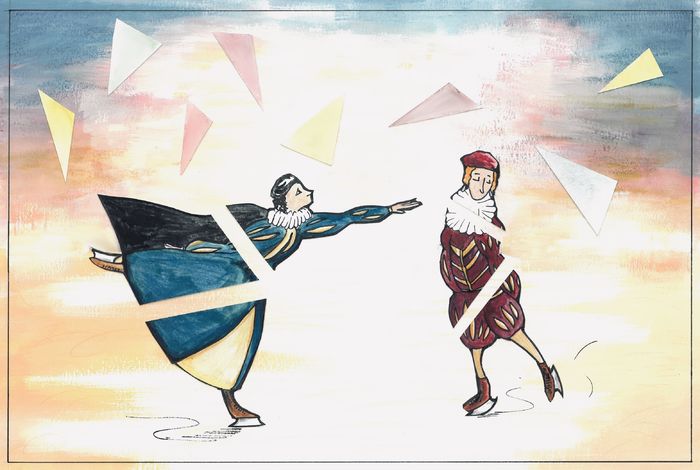Home is where the story begins
In her first column of the term, Angharad Williams examines how, for Louisa May Alcott, home truly is where the heart is
“There’s no place like home”. This simple line remains iconic, almost a century after audiences first heard it. The reason for its enduring popularity is the way it encapsulates the widespread belief that our homes are absolutely central to our lives. The meaning and significance of ‘home’ has been a constant source of inspiration for both authors and artists. Perhaps the most classic example of this is Louisa May Alcott’s Little Women, which focuses on one single family home and its many occupants. The result is a sentimental portrait of home as the place in which individuals can achieve true happiness.
The majority of Alcott’s 1868 novel is set in and around the home of the March family. A modest dwelling in the fictional town of Plumfield, Massachusetts, the house is defined not by its location, but by its inhabitants. The March family consists of a married couple and their four daughters; the unconditional love they hold for one another is clear to the reader from the beginning – even the frequent arguments between sisters Jo and Amy are interspersed with scenes of cheerful cooperation. The view of home which Alcott presents could be seen as overly simplistic, a depiction of the ideal rather than reality.
“For Alcott, a home is not a given in life, but rather something individuals must work to become worthy of.”
Much of the inspiration for Little Women does come from Alcott’s own childhood experiences. Like the March girls, Alcott grew up with three sisters in a small New England town, and the March family home even bears the same name as Alcott’s. Little Women is not a complete autobiography however, as Alcott’s childhood was in many ways more difficult than the one she would go on to depict. Alcott’s father was financially unreliable and unappreciative of the sacrifices this forced his family to make. This is a sharp contrast to the March girls’ father, who is simply absent for the majority of the novel. A reflection on Alcott’s father’s absence, it suggests it was the women in her family who, to Alcott's mind, made a home for her.
Indeed, at the time that Alcott was writing, the home was seen as the feminine space, and a woman’s success was judged primarily through her domestic endeavours. Alcott challenges this as the March sisters struggle to balance their duties at home with their individual passions. This is most apparent in the character of Jo, who longs to escape societal expectations and become a famous author. In spite of this, she is at first happy at home, and it is here that her initial attempts at writing flourish, as she scripts plays for the sisters to perform. Yet she is reluctant to get married and leave to form her own home, as she feels (not without reason) that to do so would be to give up her much prized independence. This tension exposes the contrast that existed for women between the family home of their childhood and the marital homes of their future. Alcott uses Jo’s narrative to draw attention to the ways in which building a home can become a form of restraint.
By the end of the novels, Jo is married and seemingly content to be so. The closing scene depicts the expanded March family as happy as ever before. However, Alcott stresses that such happiness at home is not easily gained. This is clear, not just in the journeys of the sisters themselves, but in that of their childhood friend Laurie. When the reader is first introduced to Laurie, he is a wealthy neighbour of the family who lacks any ambition for his life. Following an unsuccessful proposal to Jo, Laurie is chastised for his lazy attitude by Amy. Alcott, through Amy, suggests that it is not possible to establish a home until an individual’s own faults have been overcome. Indeed, shortly after this, Laurie begins to change his behaviour and Amy accepts him. For Alcott, a home is not a given in life, but rather something individuals must work to become worthy of.
Little Women is renowned for its cosy depictions of a loving home, and the view of the March family which Alcott presents is at times idealistic. However, as the novel unfolds, the restraints and sacrifices which the characters are required to make for the sake of their homes become increasingly apparent. Alcott’s novel might present home as the most central part of life, but it also acknowledges the shortcomings of such a position.
 Comment / Cambridge students are too opinionated 21 April 2025
Comment / Cambridge students are too opinionated 21 April 2025 Comment / Does the AI revolution render coursework obsolete?23 April 2025
Comment / Does the AI revolution render coursework obsolete?23 April 2025 Comment / Cambridge’s tourism risks commodifying students18 April 2025
Comment / Cambridge’s tourism risks commodifying students18 April 2025 News / News in brief: campaigning and drinking20 April 2025
News / News in brief: campaigning and drinking20 April 2025 Interviews / Meet the Chaplain who’s working to make Cambridge a university of sanctuary for refugees20 April 2025
Interviews / Meet the Chaplain who’s working to make Cambridge a university of sanctuary for refugees20 April 2025






